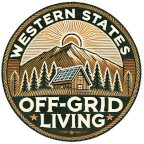…internet are available. If the property is more remote, you may need to look into off–grid living solutions or the possibility of installing your own utilities.Buying a home in the countryside is an exciting prospect, but it’s essential to do your…
Buying a home in the countryside is a dream for many, offering a peaceful retreat from the hustle and bustle of city life. However, the process can be a little more complex than buying in urban areas.
From finding the right property to understanding the legal and financial aspects, this guide will take you through everything you need to know to make your countryside dream home a reality. Whether you’re after a charming cottage or a grand rural estate, knowing the key steps to follow will ensure a smooth and successful purchase.

Choosing the Ideal Location for Your Countryside Home
When buying a home in the countryside, location is key. Consider proximity to amenities such as grocery stores, schools, and healthcare facilities. Think about the climate and natural surroundings that appeal to you, whether it’s rolling hills, a coastal location, or quiet woodlands. It’s also important to think about transportation links and the convenience of commuting if you still need access to city life occasionally.
Understanding Property Prices in Rural Areas
Property prices in rural areas can vary greatly, depending on the location, size of the property, and surrounding infrastructure. Often, you’ll find that countryside homes offer more space for your money compared to city living. However, you should also factor in potential costs related to maintaining larger properties and more land. Be sure to research different areas and consult local real estate experts to get an accurate understanding of market trends.
Key Legal Considerations When Buying Rural Property
Before committing to your countryside home, it’s important to understand the legal considerations. Rural properties often come with specific challenges such as land use restrictions, zoning laws, and agricultural designations. For expert guidance on the legal aspects of purchasing rural real estate, it’s advisable to consult with rural real estate lawyers who are experienced in navigating these unique complexities.
How to Secure Financing for a Countryside Home
Financing a property purchase in the countryside may require a different approach compared to city properties. Lenders might have specific requirements, such as a larger deposit for rural homes or additional checks on the land’s potential for development. It’s crucial to shop around for the best mortgage deals and work closely with a financial advisor to understand your options.
Understanding Zoning Laws and Land Use Restrictions
One of the most important aspects of buying a rural property is understanding the zoning laws and any land use restrictions that may apply. Some areas have strict regulations to preserve the natural environment, protect wildlife, or limit development. Research these before purchasing to ensure your intended use for the property aligns with local planning regulations.
Ensuring the Property Meets Your Needs: Access and Utilities
In rural areas, access to the property and utilities can sometimes be less straightforward than in urban settings. Ensure that the property has adequate road access and that essential services like water, electricity, and internet are available. If the property is more remote, you may need to look into off-grid living solutions or the possibility of installing your own utilities.
Buying a home in the countryside is an exciting prospect, but it’s essential to do your homework to ensure the process goes smoothly. By understanding the legal and financial aspects, researching locations, and ensuring the property suits your needs, you can turn your countryside dream into a reality. Good luck on your journey to finding your perfect rural home!
Source: Off-grid living solutions
